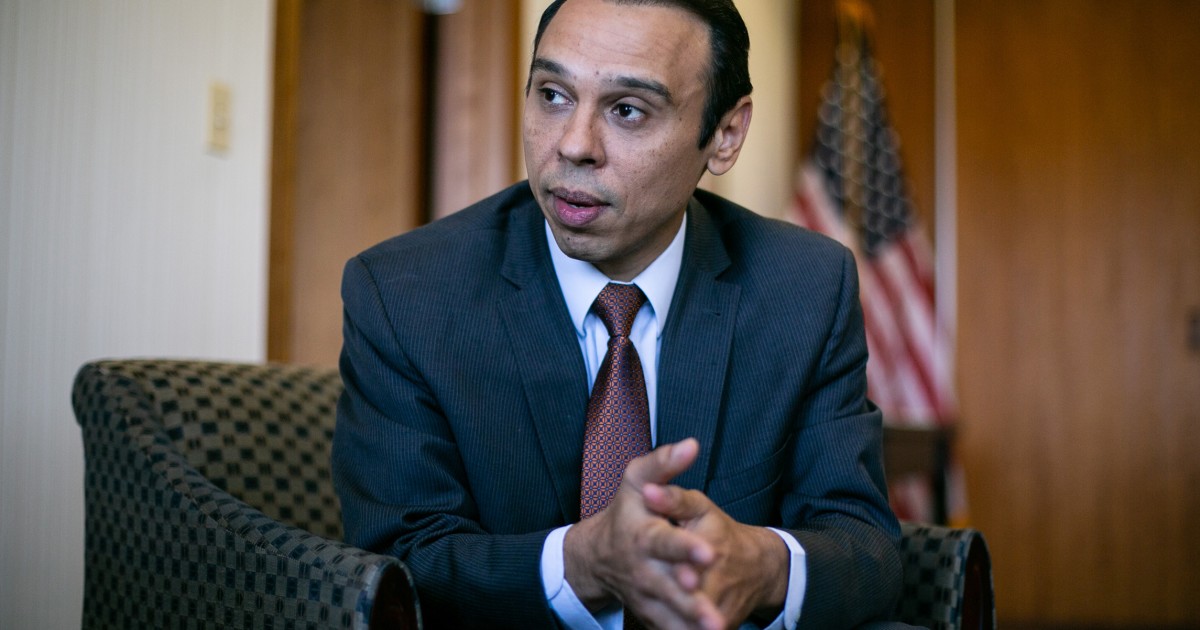
Roger Severino, the Trump administration official tasked with enforcing civil rights in medicine, knows what it’s like to overpay for healthcare.
Severino, the director of the Office for Civil Rights at the Department of Health and Human Services, recently sought medical care for a foot injury that required surgery. The day before the surgery, his healthcare provider told him he would need to purchase a boot to keep his foot still. Severino paid $ 423 for the boot, but then he went home and did some research on Amazon, only to learn that he could have bought the same thing for $ 70.
“I was really over a barrel,” said Severino, 44. “Had I been informed just a couple of days beforehand, I could have purchased it on my own and brought the boot to that consultation. I could have left with the exact same boot and been immobilized for my surgery. But I was not given that opportunity because I did not have the information.”
Severino knows many patients face much higher costs for their healthcare and sees an opportunity for patients to escape high medical bills by giving them more information about their options. He’s envisioning a role for his office in the area of surprise medical billing, a problem that other agencies and Congress have also been looking to address as it has gained more widespread attention.
The surprise billing angle might seem unusual for a civil rights office within the government’s top health division. The agency enforces federal anti-discrimination laws relating to race, color, national origin, disability, age, and sex in healthcare facilities that get government funding, including from Medicare and Medicaid.
But it also enforces a privacy law for medical records known as the Health Insurance Portability and Accountability Act, or HIPAA. In the past, a lot of the civil rights enforcement on HIPAA involved penalizing providers that didn’t keep medical information safe and secure.
Earlier this year, however, the civil rights office launched a “Right to Access” initiative to redouble enforcement of other protections offered by HIPAA, helping patients get access to their medical information.
“We have the ability, and duty, to make sure that people have the right for their own medical records in a timely fashion and without being overcharged,” Severino said.
Severino, who previously worked at the Justice Department, as well as the conservative groups the Heritage Foundation and the Becket Fund for Religious Liberty, announced his intention in February to make the right to access a priority. The issue fits into the criticism that conservatives, and the Trump administration, have leveled against the U.S. healthcare system — that it is opaque and gives patients little control.
Severino will also look for ways patients can use medical information to save money on healthcare. The approach may involve making sure people can get billing records before a scheduled procedure, for example, so that they can avoid high charges.
For now, HIPAA not only helps patients see what is in their records but helps them get information to other hospitals or family members. They can also see from their records how their health has improved or worsened and use that information to make better decisions.
But over the years, patients have complained about how difficult it is to get information when they need it. That’s one of the reasons the civil rights office decided to be more aggressive about enforcing the law.
In September, the agency settled a case with Bayfront Health St. Petersburg in Florida after the hospital took more than nine months to give a mother fetal heart monitor records she sought after her baby was born. The hospital initially told the woman it couldn’t find the records, later provided incomplete documents, and then finally provided everything she requested.
HIPAA rules require that healthcare providers give patients their medical records within 30 days of a request for them. In response to the allegations, the hospital paid the civil rights office an $ 85,000 fine but didn’t admit fault.
“This is the first of what we hope to be several enforcement actions on the right of patient access,” Severino said.
Before this year, the only other time the agency took similar action was in 2011, when it fined Cignet Health of Prince George’s County in Maryland $ 4.3 million after the hospital wouldn’t give patients their medical information.
Severino is meeting with different groups, including those that represent hospitals, health insurers, and patients, to see what else the Office for Civil Rights can do to leverage HIPAA.
“We see that providers are not fully informing patients of what to expect when it comes to treatment, and they’re therefore depriving them of the option for being able to shop and take charge of their own healthcare,” he said.
